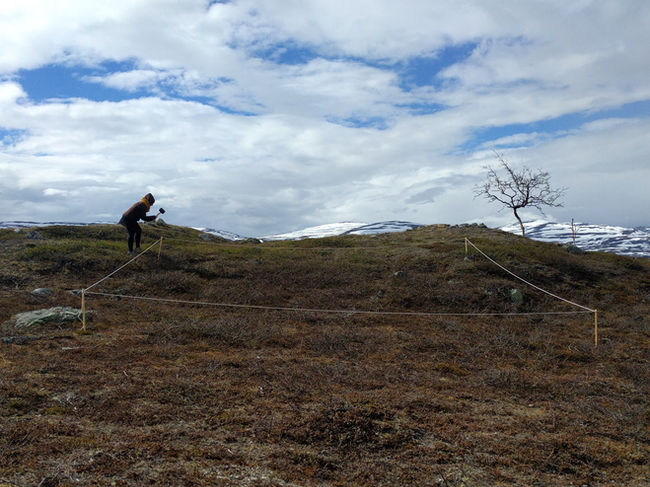Seeing Things
Performative research conducted in the Arctic during the summer solstice, resulting in an essay and a solo exhibition of sculptures and works on paper
Kilpisjärvi Biological Station and Käsivarsi Wilderness Area, Finland
In collaboration with mathematician Luke Wolcott
2017


In June 2017, along with my long-time mathematician collaborator Dr. Luke Wolcott, I was an artist-in-residence at Ars Bioarctica, a program hosted at a biological station in the far north of Finland, near the tri-border-point of Finland, Sweden, and Norway. This station hosts interdisciplinary artists month to month, along with a regular rotation of biologists, zoologists, entomologists, climatologists, and other researchers who do fieldwork in the landscape.
Seeing Things is an interdisciplinary research project that was undertaken in Finnish Lapland, examining and recording subjective experiences of looking at, waiting for, and counting lemmings. My collaborator and I used wildlife-counting methods to track animal populations: We marked off a series of squares in the landscape and observed fauna passing through them for extended time periods. We were interested in the embodiment and construction of ecosystem measurement, as a scientific yet subjective apparatus of data gathering.
The phrase “seeing things” is about literal physical observation, while it is also about seeing what is not really there, the hallucination of objective representation – like our eyes tricking us when we try to see in the dark. The point of departure for the current research is human observation and the subjective act of counting – in all its inherent imperfection and error – as forming the empirical basis for all so-called “objective” knowledge and data collection. Scientific observation relies heavily on the naked eye, still the best lens available for looking. What is the significance of human witness to the state of ecology in marginal landscapes? What are its limitations, and what are the stakes of not seeing, or simply losing count? What stands to be lost? What is to be gained through the embodied knowledge of counting in an age when we rely on abstract quantifications to maintain a sense of truth and ecological orientation?